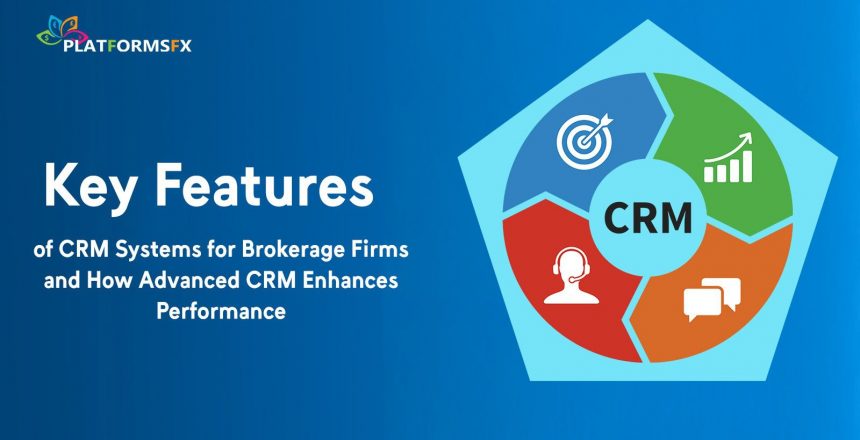Introduction
Customer Relationship Management (CRM) systems play a crucial role in the success of brokerage firms by enabling them to manage client relationships effectively and streamline operational processes. In an increasingly competitive market, adopting an advanced CRM system is essential to enhance performance and operational efficiency. Below, we outline the key features that a CRM system for brokerage firms should offer and how an advanced CRM can elevate the company’s performance.
1. Comprehensive Client Data Management
Effective client data management is essential for brokerage firms. A CRM system should provide a holistic view of each client, including personal details, transaction history, investment preferences, and risk tolerance. This comprehensive data enables teams to deliver personalized services and tailored investment recommendations, improving the likelihood of success and enhancing client satisfaction.
2. Customized and Targeted Marketing Campaigns
Personalized marketing is a fundamental feature of an effective CRM in brokerage firms. With advanced analytics, the CRM can segment clients based on their interests and needs, allowing for highly targeted marketing campaigns. This capability not only increases engagement rates but also helps attract new clients and boost the loyalty of existing ones.
3. Integration with Trading Platforms and Order Management Systems
To simplify operations and improve the client experience, a CRM should integrate seamlessly with trading platforms and order management systems. This integration provides brokerage teams with real-time access to each client’s trading information, making it easier to monitor performance and offer timely support. It also enhances the company’s responsiveness to client requests, improving work efficiency.
4. Advanced Analytics and Periodic Reporting
An advanced CRM should enable access to detailed reports and analytics on client performance and financial transactions. This allows the system to analyze trends and predict potential client behaviors, helping the team make proactive decisions and devise effective strategies. These analytics are instrumental in improving service quality and identifying new growth opportunities.
5. Task Management and Automated Follow-Ups
To deliver high-quality services, the CRM should include a task management and automated follow-up system. The system can remind teams of crucial tasks, such as following up with a client after a major trade or sending a notification to renew client documents. This organized follow-up helps enhance client engagement and increases loyalty.
6. Advanced Data Security and Protection
Data protection is a crucial component of any CRM, especially in the financial services sector. The system must include high-level security measures like encryption, two-factor authentication, and access control. Ensuring client data confidentiality enhances their trust in the company and secures financial transactions in a safe and sustainable manner.
7. Real-Time Customer Support with Multi-Channel Communication
An advanced CRM provides clients with multiple communication channels, such as email, live chat, and phone support. This flexibility in contact options improves the client experience and ensures quick response times. It also boosts the efficiency of the customer service team and helps establish long-term relationships with clients.
How Advanced CRM Improves Brokerage Firm Performance
An advanced CRM provides brokerage firms with multiple advantages, from operational efficiency to increased client loyalty. With advanced analytical capabilities, the system delivers accurate, actionable data that enables teams to make informed decisions. Personalization in client interactions enhances success rates and increases the likelihood of achieving investment goals.
Moreover, an integrated CRM reduces human errors and accelerates processes, allowing the team to focus on high-value activities such as offering investment advice and expanding the client base. Ultimately, adopting an advanced CRM improves client experience and loyalty, contributing to the company’s reputation and market share growth.
Conclusion
In a highly competitive brokerage industry, investing in a comprehensive, advanced CRM system is essential. Such a system can have a significant impact on a firm’s performance by enhancing operational efficiency, increasing client satisfaction, and building loyalty.



